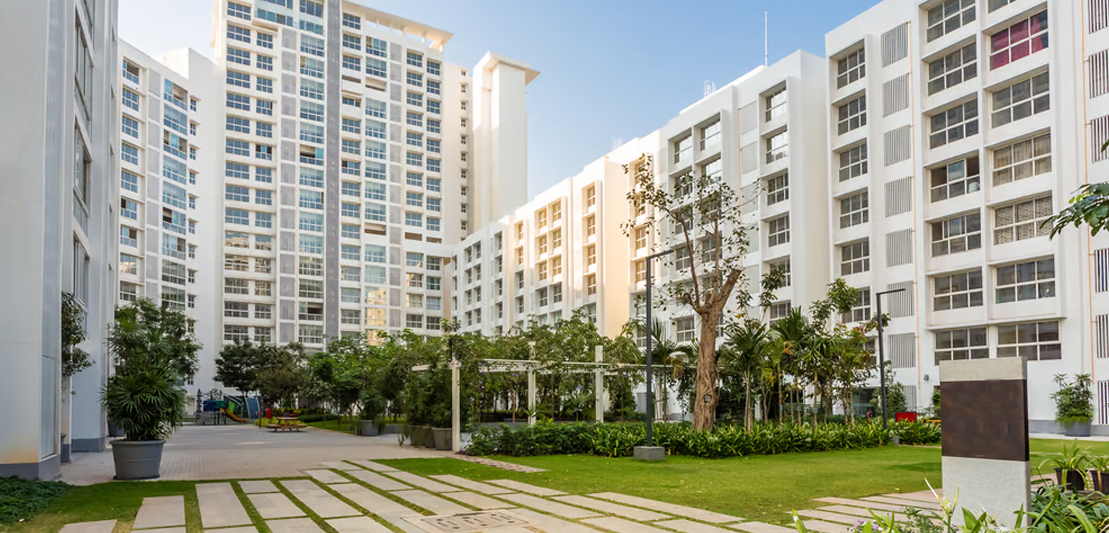Why Homebuyers Should Choose Sustainable Buildings in Today's Market
Read latest blogs and articles from Housystan

The Information mentioned here was last updated on:
21/2/2026Why Homebuyers Should Choose Sustainable Buildings in Today's Market
Understanding Sustainable Buildings: The New Standard in Real Estate
As the real estate landscape rapidly evolves, the concept of sustainability has become a central focus for homebuyers and property developers alike. Sustainable buildings—also known as green buildings—prioritize energy efficiency, resource conservation, and reduced environmental impact. In today’s competitive housing market, choosing a sustainable home isn’t just a trend; it’s a strategic decision that can benefit homeowners, communities, and the planet.
- Verified Tenants/Buyers
- Unlimited Property Listing
- Zero subscription/charges fee
What Defines a Sustainable Building?
Sustainable buildings are designed and constructed with careful attention to minimizing their carbon footprint and optimizing the use of renewable resources. These properties often feature energy-efficient appliances, advanced insulation, solar panels, water-saving fixtures, and environmentally friendly materials. Importantly, the goal is to create comfortable, healthy living spaces while reducing waste and emissions throughout the building’s lifecycle.
Energy Efficiency: Lowering Costs While Protecting the Environment
One of the most compelling reasons for homebuyers to prioritize sustainable buildings is the significant savings on utility bills. Sustainable homes utilize state-of-the-art insulation, double-glazed windows, and high-efficiency HVAC systems, which translate to lower energy consumption. Solar energy systems and smart thermostats further enhance energy management. Over time, these features can reduce utility costs by up to 30 percent, making sustainable homes a sound financial investment as well as an environmentally responsible choice.
Health Benefits: Creating Safer, More Comfortable Living Spaces
Modern sustainable buildings are designed with indoor air quality and occupant well-being in mind. Builders use low-VOC paints, non-toxic materials, and advanced ventilation systems to reduce indoor pollutants and allergens. This results in healthier indoor environments, which is particularly important for families with children, elderly residents, or individuals with respiratory conditions. Natural lighting and thoughtful design also contribute to mental well-being by creating inviting, uplifting spaces.
Water Conservation: Smart Solutions for a Resource-Scarce Future
Water scarcity is an escalating global challenge, making water-efficient homes highly desirable. Sustainable buildings incorporate rainwater harvesting systems, greywater recycling, and low-flow fixtures to drastically reduce water usage. These innovations not only conserve a precious resource but also lower monthly water bills—providing another compelling incentive for eco-conscious homebuyers.
Environmental Impact: Reducing the Carbon Footprint
Buildings are responsible for a significant portion of global carbon emissions. Sustainable construction practices—such as using recycled, reclaimed, or renewable materials, and reducing construction waste—help to mitigate this impact. Features like green roofs, permeable paving, and landscaping with native plants further support biodiversity and reduce the urban heat island effect. By choosing a sustainable home, buyers play an active role in combating climate change and preserving natural ecosystems.
Enhanced Property Value: Future-Proofing Your Investment
Market demand for sustainable homes continues to grow, with eco-friendly features increasingly viewed as essential rather than optional. Green certifications such as LEED or ENERGY STAR are now recognized as valuable assets, often translating into higher resale values and faster sales cycles. As energy regulations tighten and environmental awareness increases, homes that meet or exceed sustainability standards are likely to remain competitive and desirable for years to come.
Government Incentives and Financial Benefits
Many governments and municipalities offer incentives for purchasing or retrofitting sustainable buildings. These range from tax credits and rebates to reduced mortgage rates for energy-efficient homes. Such incentives can make the upfront investment more affordable and accelerate the return on investment for homebuyers. Additionally, some insurance companies offer discounts for properties with green features, further sweetening the deal for environmentally responsible buyers.
Community Impact: Building Stronger, More Resilient Neighborhoods
Sustainable buildings contribute to healthier, more resilient communities. Thoughtfully designed neighborhoods with green spaces, efficient public transport, and mixed-use developments foster a sense of connection and well-being. Sustainable homes often encourage the use of bicycles, carpooling, and renewable energy sources, leading to lower pollution levels and improved quality of life for all residents. Investing in sustainable real estate isn’t just about personal gain—it’s about supporting the future of entire communities.
Technological Innovations: The Future of Sustainable Living
The sustainable building sector is constantly evolving, with smart technologies and innovative materials transforming the way homes are built and operated. Automation systems now allow homeowners to monitor and control energy use in real time, optimizing consumption and reducing waste. From energy-generating windows to self-healing concrete, these advancements are making sustainable living more accessible and efficient than ever before.
Making the Switch: What Homebuyers Should Look For
For those considering a sustainable home, it’s essential to look beyond surface-level features. Evaluate the property’s energy rating, the origin and composition of building materials, water efficiency measures, and the availability of renewable energy sources. Ask for documentation of green certifications and inquire about long-term maintenance requirements. By doing so, buyers can ensure they are making a wise and future-proof investment.
Conclusion: A Smart Choice for Today and Tomorrow
In today’s fast-changing world, sustainable buildings offer a compelling blend of environmental stewardship, financial savvy, and enhanced well-being. By prioritizing homes that champion energy efficiency, water conservation, and low-impact construction, homebuyers are not only securing a comfortable and cost-effective living space but also contributing to a more sustainable future. As awareness grows and technologies advance, the case for choosing sustainable buildings in today’s market becomes stronger than ever—making it a smart, forward-thinking decision for homeowners and investors alike.